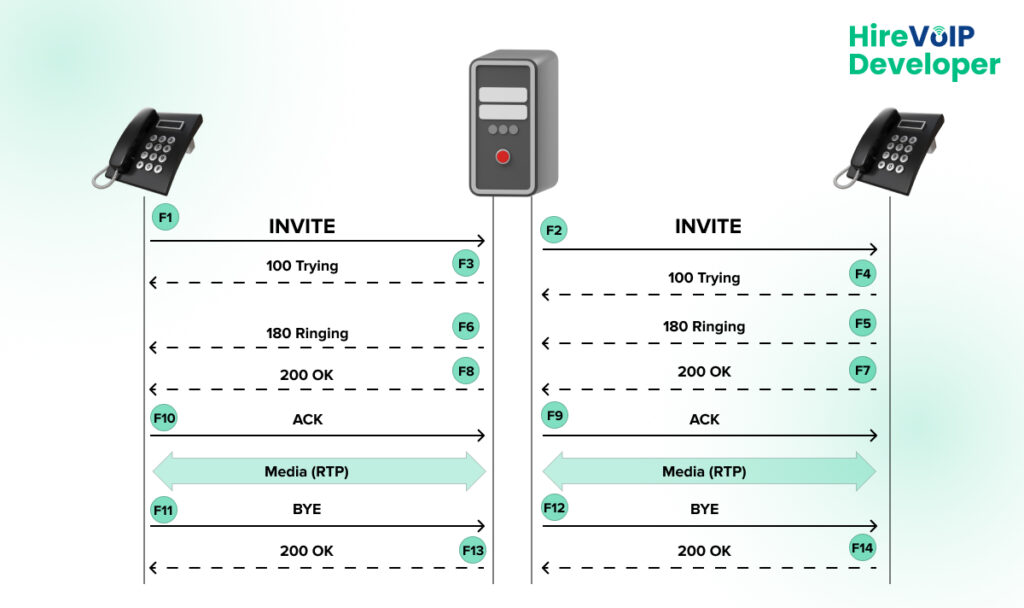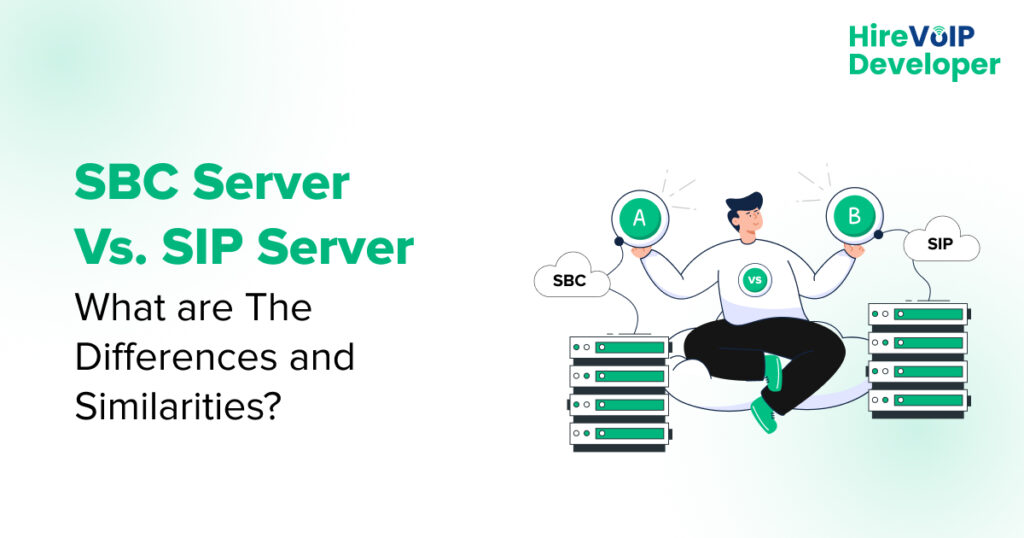Technological advancements have significantly changed business communication, giving it a new shape with real-time communication solutions like VoIP. We have come so far from telephone lines in the Victorian Era to online communication in the mid-80s.
VoIP Solutions and Unified Communication have introduced us to SIP security, SBC, and SIP Signaling concepts. The SIP server and SBC are two main network elements in today’s communication.
Today, businesses and organizations are increasingly switching to VoIP as a Service, which requires a more comprehensive understanding of the differences and similarities between SBC and SIP.
We will discuss this in detail, but first, let us discover what SIP servers and SBC are.
Session Initiation Protocol (SIP) Server
SIP is responsible for managing and terminating calls over the Internet and initiating responses to requests made by other devices to establish connections. It acts as an intermediary between two network devices, managing and responding to communication initiation requests.
Functions of SIP
SIP server orchestrate multiple functions to ensure smooth operation of calls. This includes:
-
Call Monitoring
The SIP Server facilitates call transferring, forwarding, and waiting. It is also responsible for updating and responding to new requests during the call.
-
Cost Efficiency
SIP enables low-cost maintenance by reducing the cost of additional hardware structures and facilitating communication over the Internet, reducing the cost of local calls for any organization.
-
Session Termination
After the caller requests to hang up, the SIP server is responsible for terminating the call and adding a new request to other devices if required.
-
Registers Users and Locations
The SIP server locates and authenticates the sender’s IP address and identifies it to establish a connection between one or more networks.
Secure Your VoIP Network with the Right Choice! 🚀
Perks of SIP Server
With multiple implementation tools, a robust SIP trunking Solution ensures seamless SIP signaling, by providing numerous benefits, such as cost cutbacks for your network, real-time presence with accurate data, enabling you to enhance the scalability of your enterprise network, and being a reliable source for your consumers.

Session Border Controllers (SBC)
Session Border Controllers are deployed on the network’s edges to ensure the security of data packets transmitted or any session initiated by SIP protocol from potential external threats.
Functions of SBC
You might already be familiar with the core objective of SBCs, but they have a lot more than this.
- Security
SBCs ensure the SIP security of data transmitted over the router from possible threats by allowing only authorized credentials to access the data and recognizing and restricting unusual attacks that hamper data sharing.
-
Transcoding
SBCs compress and decompress data packets in different languages according to the protocol of the end-user network, allowing two different codecs to establish a smooth and collaborative connection.
-
Load Balancing
SBCs route away unnecessary traffic, hampering data packet transmission based on the health of the Server and the availability of multiple servers, so as not to overload a single server.
-
Fail-Over
As we discussed above, SBCs route away calls only on healthy servers. If, in any case, the server failover occurs, SBC automatically routes the call to backup servers instead of primary network servers.
-
Topology Hiding
SBCs ensure SIP security for ongoing transmission by creating a pseudo IP address and hiding the original one. It prevents the IP addresses from being disclosed and keeps the sender’s IP location unrevealed.
Perks of SBC
SBCs ensure security and improve enterprise network communication by routing away traffic, acting as a mediator between two codecs of different languages, enabling you to provide Quality of Service (QoS), and allowing you to work from wherever you are without security concerns and ensuring VoIP network security.
The features mentioned above differ merely but create a significant transformation to your communication network.
| Key points | SIP Server | SBC |
| Role in Network | Manages sessions within the network. | Acts as a gatekeeper on the network borders. |
| Primary Functions |
|
|
| Deployment | Deployed in the network internally. | Deployed on the network borders. |
Explore the nitty-gritty of SBC and SIP for your business.
Conclusion
SBC and SIP servers are the two main elements of any VoIP network. Though they contrast significantly, they are crucial for enhancing communication in any enterprise network. While SIP manages sessions during SIP trunking and improves collaboration and connectivity, SBCs ensure robust security and reliability in your network. At Hire VoIP Developer, we specialize in providing custom SBC solutions tailored to meet your business communication needs.
FAQs



